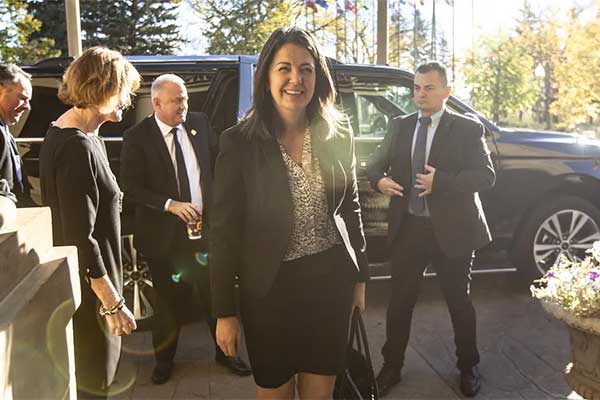The solar energy industry in Alberta is booming, with an increasing number of homeowners and businesses opting to install solar panels to lessen their dependence on conventional power sources.
In 2023, Alberta was at the forefront of Canada’s renewable energy expansion, contributing to over 92% of the nation’s overall growth. This growth encompassed both solar and wind energy, with the province adding a total of 2.2 GW of installed capacity.
Despite this progress, the Alberta government implemented a pause on new renewable energy projects larger than one megawatt in August 2023. The Alberta Utilities Commission (AUC) needed time to reassess policies and procedures for renewable electricity generation, according to the province.

Alberta is a province in Western Canada. Its landscape encompasses mountains, prairies, desert badlands and vast coniferous forests. It has more than 600 lakes, and rich mineral deposits. In the west, the Canadian Rocky Mountain Parks have glaciers in the Columbia Icefields. The Waterton Glacier International Peace Park is a biosphere reserve that straddles the southern border with the USA.
Alberta Premier Danielle Smith announced on February 5 that the pause would conclude as scheduled on February 29, leaving many awaiting further details on the future of renewable energy in the province. Although the pause is expected to limit the sector’s growth in 2024, most of the anticipated projects are already underway.
Nathan Neudorf, Alberta’s minister of affordability and utilities, assured that the hiatus would provide the necessary clarity for the renewable energy sector and maintain Alberta’s leadership in renewable energy projects.
However, the industry is currently facing challenges outside of Alberta’s major cities, notably delays in the approval process by major electricity distributors like FortisAlberta. Owning 60% of Alberta’s electricity distribution network, FortisAlberta is critical for processing applications for solar micro-generation sites in central and southern Alberta. Both companies and customers report significant delays, with some waiting months for project approval. These delays are costly and cause frustration among customers eager to reduce their power bills promptly. They also complicate project bidding for companies due to rapid fluctuations in material costs.
The AUC has noted an uptick in inquiries regarding FortisAlberta and solar micro-generation units, though no formal complaints have been lodged. In response, FortisAlberta has acknowledged these issues and is taking steps to mitigate them by hiring additional staff, consulting to correct common application errors, and planning to deploy new software aimed at reducing approval times by the end of May.
As Alberta’s solar energy sector continues to flourish, ending its 7-month moratorium this week, it faces significant infrastructure challenges, including delays from electricity distributors. For sustained growth, it is imperative for companies and regulators to collaborate closely to streamline the approval process for solar energy projects and overcome these obstacles.











Comments